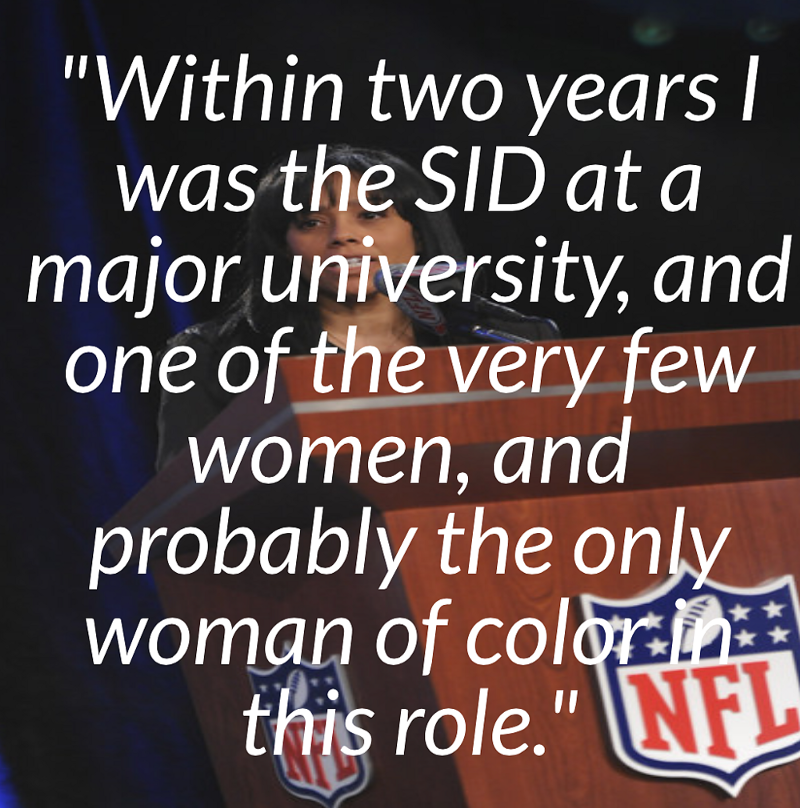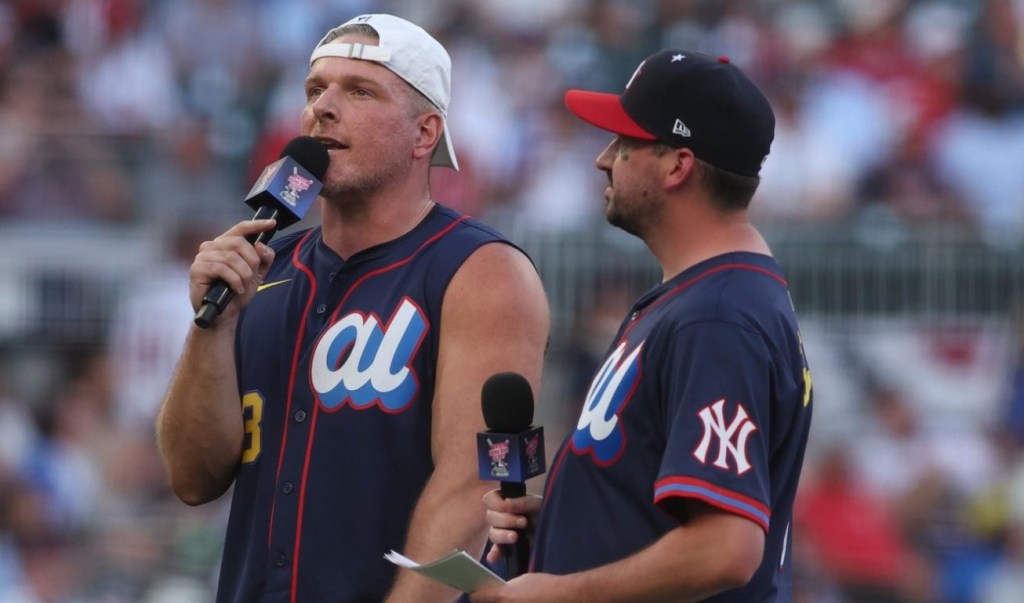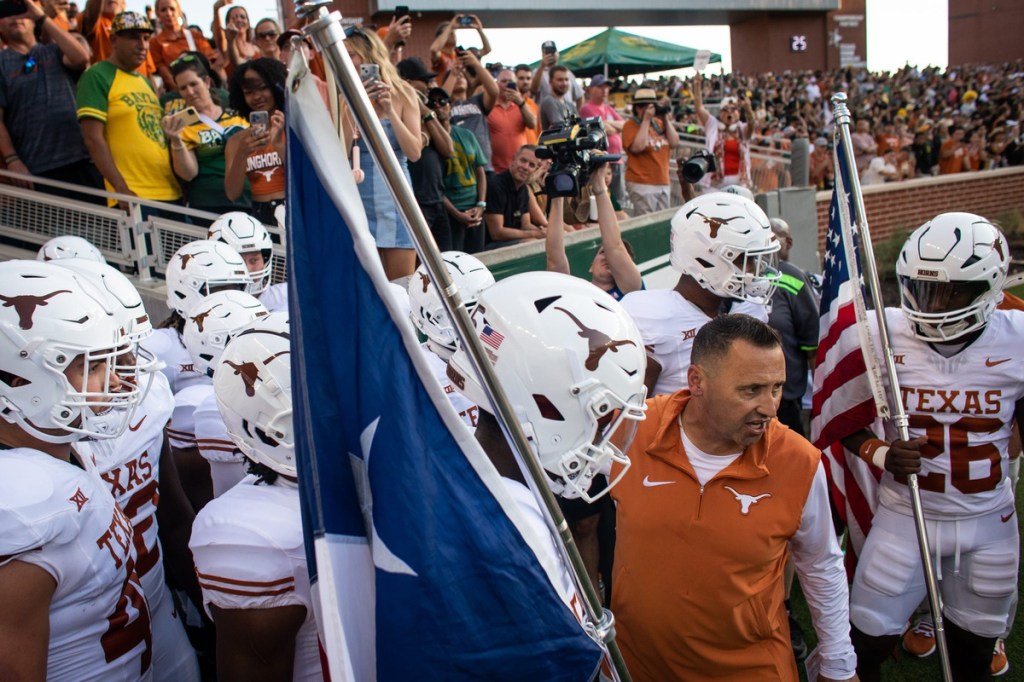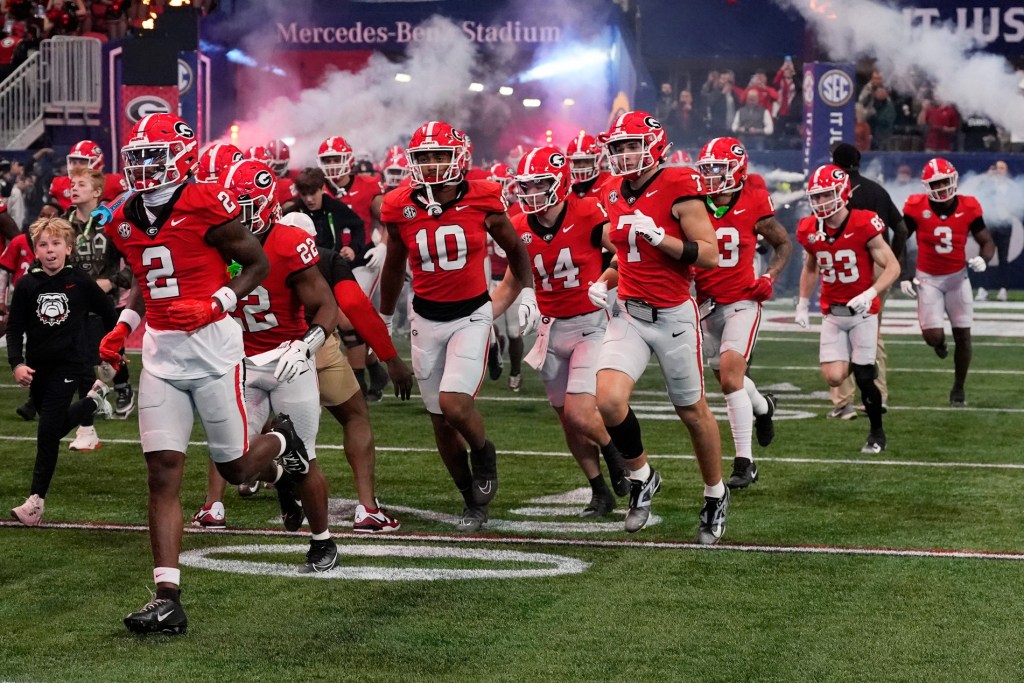By: Jay Stein, @JStein209

Front Office Sports is proud to have gotten the opportunity to speak with Chartese Burnett. Prior to Ms. Burnett transitioning over to working in the non-profit sector, currently serving as the Senior National Director of National Partnerships with the Leukemia and Lymphoma Society, she was a lifelong sports business professional in various major professional sports organizations. This includes stops working with the NBA, the NFL Players Association and with Washington Nationals during their initial years after relocating to DC. Ms. Burnett continues to share her knowledge in sports business as an educator while teaching at Georgetown University and the University of Maryland. Ms. Burnett was more then happy to offer up her time and insight into her journey throughout the sports industry, some of the challenges she faced, and her advice to those just beginning their careers in sports business.
What is like teaching sports business at both the Undergraduate and Masters level, and how are the courses you teach designed to help those students become successful working in the industry?
Ms. Burnett began by explaining her role as an educator, starting with how the Master’s level program at Georgetown was designed with, “the thought of having a program that would stack up against some of the top sports management programs in the country. It was positioned with professors and adjunct faculty being top executives in their field with tons of tenure, not necessarily having academia backgrounds, but having tremendous backgrounds and experience in their respective field.”
The program was, “structured where students were learning in an applied setting, and learning from people who have real life experiences and real life success stories in sports business… I am one of the several people who have been in the sports industry for over 30 years, and with the vast background I had on the team side, the league side, the player side and the collegiate side,” she professed, giving her the opportunity to become a part of the inaugural faculty.
Moving on to the course Ms. Burnett teaches at Maryland, she explained how it is slightly different then the program at Georgetown. This course is an, “undergraduate course for juniors and seniors who want to learn a little bit more of sports, and how sports is positioned in the media, and media relations… We don’t go deeply into the journalistic side of sports, but more about how athletes, teams and properties and leagues are positioned in the media.”
How important was it for you to have strong support group of mentors and people in your network that helped you as your progressed in your career?
Ms. Burnett could not emphasize enough how beneficial it was to have people there for her guiding and supporting her throughout her journey in sports business. She started in sports working at Georgetown University’s sports administration office where she reported to, “two amazing gentlemen, who were both SIDs at the time, one covering Men’s Basketball and the other working with the other, roughly 22, Non-revenue sports.”
Due to a slew of events, Ms. Burnett was fortunate and able to move up the ladder very quickly, and, “within two years I was the SID at a major university, and one of the very few women, and probably the only woman of color in this role.”
This opened the door to many new opportunities as she began making connections in the sports industry, starting with David Aldridge, who had covered Georgetown basketball and had went on to cover the NBA. Ms. Burnett explained how, “the commissioner, David Stern, who was a mentor of a mine, probably the person I respect the most in all of sports, asked David Aldridge if he had a recommendation to come up to the league office for a brand new position, the Director of Media Relations. David recommended me, I went in and interviewed with David Stern and got the job!”
She confessed how her career truly, “has been a storied one, as I consistently got recommended for positions, and it was always a newly created position.” The importance of having a strong network again reveled itself when Ms. Burnett went on to the NFLPA. She explained how it was actually, “someone with the Atlanta Hawks who knew about a job for the NFLPA, and they recommended me for that job! Then one of my interns at the NFLPA, years later, was in a position at Turnkey Sports, and they were hiring for the Washington Nationals for a brand new position, VP of Communications and Community relations, and she recommended me for that job.”
What challenges were you faced with, at first breaking into sports business, and then continuing to move up in the industry?
“I have to say I am not your typical example,” Ms. Burnett quickly stated. “People will speak to internships, but I was very blessed. My career began at a time, a place, a setting and scenario that internships weren’t really my story.“
As far as any challenges are concerned she really couldn’t think of many other then having to adapt to the different environments she worked in. Most notably, while working with the Washington Nationals, she was faced with a working in a much different cultural environment.
“I will say that I think Major League Baseball was a little different as it related to how progressive they were or weren’t as it related to females being in front office jobs.” While she explained how, “the NBA has done an amazing job and has always been a very progressive league compared to the others,” it was different in baseball where she often, “felt like a fish out of water.”
Would you recommend people to be more open minded when trying to break into the sports industry, or should someone have a strong single area of focus while targeting new opportunities?
“I think one of the biggest things is really being specific about what it is you want to do,“ as Ms. Burnett began to share her recommendation. “I know sometimes you don’t know what you want to do when you’re younger… but the one thing you don’t want to do is to say I want to be in sports and say I am a fan.”
More importantly, she felt that to be successful in sports business, “you need to understand that sports is a business, and everyone in it is in it to make money…. You have to approach it and know specifically how do my gifts, my talents, my passions align with a specific role, team, league, agency…”
That is only the beginning of the process, as Ms. Burnett explained, because once you have identified what it is you would like to do in sports, “you’re going to need to articulate that. When you can’t tell me what you want to do in sports, I can’t really help you!” She continued to elaborate, “hone in on what it is you’re good at, what your background and education entails, and what’s going to be a good fit, and then at least be able to articulate and have an elevator pitch!”
We wrapped up the discussion on the topic by talking about the importance of being able to communicate and share, “what value you can bring to the table to a particular organization, but first, it’s really trying to figure out what it is you want to do!“
What trends have you noticed in sports that may translate into new opportunities?
Going along with what many others have seen becoming a rising trend, Ms. Burnett stated that, “in the digital space, I think that clearly presents a lot of opportunities.”
Looking back at her time with the Nationals, she mentioned how “when I was leaving, I saw that there were people coming in to work specifically in the digital space from a marketing perspective to handle all of the social media platforms, and I think that is only going to continue to grow!”
“Who knows what the next big thing is going to be,” Ms. Burnett acknowledged, “but now I see sports properties really getting into that [digital] space and making sure that they are managing their social media platforms very specifically, very strategically and very intentionally.”
We continued on the conversation relative to the growth in the social and digital space and we both agreed that it is, “really exciting for the younger generations. It presents a huge opportunity, and as far as jobs go, it’s really a great opportunity because it’s how people are already communicating.” This coincides with more traditional ways of doing business, and Ms. Burnett mentioned that there continues to be, “some reluctance by people who have been in the industry for a while to embrace social media and the platform, and to understand and recognize its importance to reach younger generations.”
Parting Wisdom?
“Here’s the thing about sports, its entertainment, its fun, but it’s hard work. It can be glamorous but its not all glamour. People on the outside looking in think its all glamour, but it’s a lot of hard work and there are no off seasons!”
“Being passionate about sports is one thing… but it’s really about understanding the business of sports. This is corporate America, it’s just the sports industry, but it’s still about making money. Be able to point to the value that you bring, not only that you have this competency or this skill but how does that bring value and drive revenue. Being able to speak that language goes a long way!”
“Work hard! Always try to learn as much as you can! Understand the business, understand the big picture, what’s happening around you and why things are being done the way they are. Keep your knowledge a little bit broader then where you are and learn from everything that is going on! Ask good questions, because you’re going to be more valuable the more knowledge you have.”
We would like to thank Chartese for her time and insight! You can follow her on Twitter here and LinkedIn here!
















